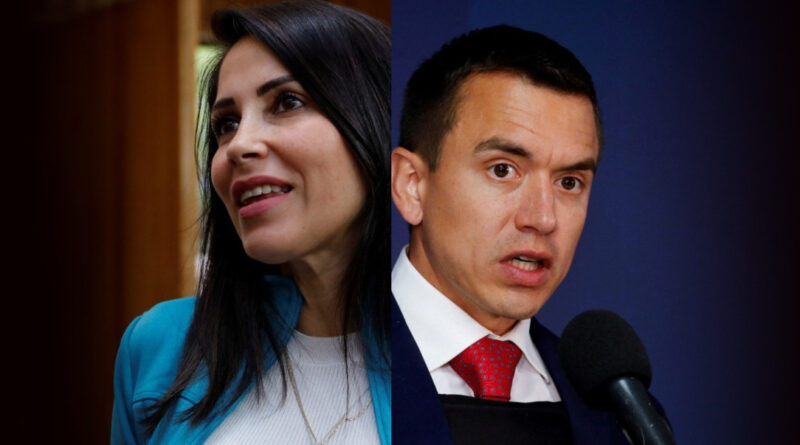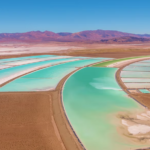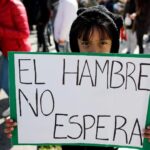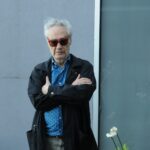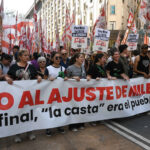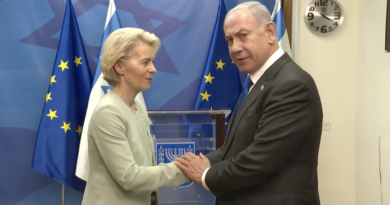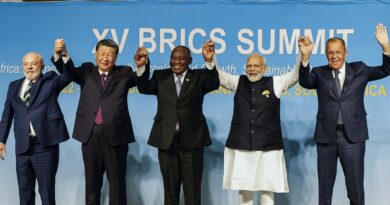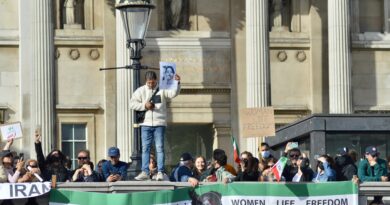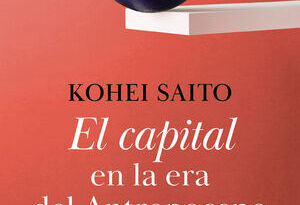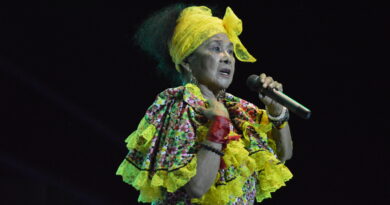Ecuador elects a new president between Correista González and businessman Noboa
CECILIA VALDEZ
Ecuador elects today, in the second electoral round, a new president between the Correista candidate, Luisa González, and the businessman Daniel Noboa. The call for early elections occurred on May 18, when Guillermo Lasso, the current president, decided to dissolve the National Assembly using a constitutional mechanism called “crossed death,” to avoid his impeachment. Lasso leaves a country mired in a deep crisis whose main emergent is insecurity and the advance of organized crime, with rates of violence unprecedented in the history of that country (25,32 per 100.000 inhabitants).
Although González, the candidate of Revolución Ciudadana (RC), was emerging as the favorite for the first round, the latest polls indicate a slight increase in her voting intention that would not be enough to surpass Noboa.
First round
In the first round on August 20, the Correísta binomial of Luisa González-Andrés Arauz obtained 33% of the votes, compared to 24% for Daniel Noboa of the National Democratic Action (ADN), son of a well-known banana businessman and five-time presidential candidate, Álvaro Noboa. Of the 8 pairs that competed for the government space, these two were the favorites, but of those who were left out, one of those that draws the most attention is that of the indigenous candidate Yaku Pérez. In the first round of the 2021 elections, Pérez (19,38%), then the Pachakutik candidate, and Guillermo Lasso (19,74%), the conservative candidate and current president, obtained almost 20% of the votes . Pachakutik denounced fraud and a series of irregularities, which were not accepted by the competent authorities in the matter, so the second round, between Lasso (52%) and Arauz (47%), the Correísta candidate, ended up being decided in favor by Lasso. In the first round in August, Pérez did not reach 4%. Some analysts maintain that Pérez's peaceful and spiritual profile did not work in his favor at a time when society demands energetic and forceful responses, and that the internal fractures of the indigenous movement did not help either.
Parallel to the elections for assembly members and president, on August 20, Ecuadorians voted “Yes” (60%) to suspend oil exploration in the Yasuní National Park. This park was designated by UNESCO as a biosphere reserve, is inhabited by an indigenous population in voluntary isolation and is home to the largest oil reserve in Ecuador. It is a portion of the Amazon that covers about 10 thousand square kilometers. Although, since the late 3700s, different legal mechanisms have been promoted that seek the conservation of this portion of the Amazon, Ecuador was debating between preserving a unique space in the world or exploiting its hydrocarbons and covering its multimillion-dollar fiscal deficit (68 billion of dollars). The referendum also voted “Yes” (XNUMX%) to the ban on mining exploitation in the Chocó Andino, an area especially important for its biodiversity.
Extreme violence
The run-up to the electoral campaign of the first round was marked by a climate of unprecedented violence in which two extremely relevant events took place: the assassination of the presidential candidate Fernando Villavicencio, and the murder of Agustín Intriago, mayor of one of the largest cities in the country: Manta. Although many anticipated that the deterioration of the Lasso government, explicitly anti-Correísta, could generate a rebound effect that benefited González, the murders of both politicians and the increase in violence caused greater volatility of the vote at the last minute that ended up benefiting Noboa. . If a year ago only 22% of the population considered insecurity to be Ecuador's main problem, after the Villavicencio crime that percentage rose to 70%.
Otherwise, the banana businessman had unlimited funds throughout his campaign, he toured the country distributing food, clothing and medical services, but, above all, he had a very good performance in the last presidential debate. Even though almost no one believes that the electorate's vote can be influenced by the presidential debates, in the case of Noboa there seems to be some kind of consensus that his good performance on almost all the issues addressed in the debate on August 13 influenced the balance in your favor. The other thing that works in his favor is that, unlike González, Noboa did not suffer the onslaught of the rest of the candidates (because he was not considered in the race) and that somehow (despite inheriting his father's legacy) he managed appear outside the traditional political class.
Right
Although the vote changed throughout the campaign, after Villavicencio's murder the electorate leaned more strongly towards the most right-wing options, or those that embodied the most anti-Correísta options.
Both González and Noboa, if elected president, will have to deal with the block of assembly members of Construye, Villavicencio's party. Although after his death, Christian Zurita was chosen as his replacement, his name was not removed from the ballot and his strength was the second most voted. Led by former minister María Paula Romo, an ally of Lenin Moreno and Lasso, this group of assembly members will continue the legacy of Villavicencio who made the allegations of corruption against Correa and his government his main workhorse, and they predict spaces for strong confrontation in Congress.
The poor result of the RC candidate, Luisa González, is due to her own errors, but also to the impact that the political accusation of the Villavicencio crime had on her party, especially among the most undecided voters; although indirectly it also generated a certain impact because it increased the flow of votes towards the murdered leader. In any case, everything indicates that most of the votes of the different binomials in the first round will go to Daniel Noboa this time.
As the former metropolitan mayor of Quito, Augusto Barrera, wrote on the Nueva Sociedad portal, this turn to the right responds, in part, to the impossibility of generating a center-left space due to the disastrous “legislative efforts of Izquierda Democrástica and Pachakutik.” , very erratic in relation to the Lasso government and crossed by shameful internal quarrels, which ended up destroying any pretension of maintaining their political and parliamentary presence. And because “the electoral disaster of these actors deepens the crisis of the political parties,” since, “with the exception of the RC candidate, the rest of the candidates had no organic relationship with the organizations that sponsored them. “Political parties are in a deep crisis and operate as rental letterheads without ideological support or social base.”
For Barrera, another of the important changes operating in the political scene of Ecuador has to do with the replacement of the candidates who disputed their identity based on their affiliation to Correismo/anti-Correismo, with that of the candidacies managed by the power groups. From Guayaquil. These are large political-economic forces that bet on a generational change with young people linked to business groups: Jan Topic (telecommunications and security), Otto Sonnenholzner (shrimp) and Noboa (banana).
The candidates
Daniel Noboa was born in Miami, is married to the well-known influencer Lavinia Valbonesi, has five university degrees from the US, a declared net worth of 650 thousand dollars, 17 years of experience in a private company and two years as a legislator (president of the Development Commission Economic). In his father's family corporation, which owns 128 companies in different countries, he became a shipping director, but he also created his own companies. Having established himself as a representative of anti-politics, and distant from both the confrontation with Correa and the Lasso government, seems to be one of the strongest points of the campaign of this young businessman who defines himself as a defender of the freedom of enterprise with vocation of social service. He also says he is neither on the right nor on the left, and his government plan includes a section on “inclusion and protection of the rights of LGBTQ + groups.”
For her part, Luisa González is a lawyer from Quito, and claims to be Montubia because she belongs to the peasant town that lives on the Ecuadorian coast of Manabí. She was a legislator in the National Assembly until Lasso ordered its dissolution and accompanied Correa in different positions during her two terms until 2017, when she served as national secretary in the Andean Parliament (2018-2019). One of the main criticisms that her candidacy received when it was announced came from feminist organizations that recalled that González opposed the decriminalization of abortion in cases of rape during her debate in the National Assembly, but that it was finally approved in February 2022. While González has stated that he is against decriminalization, but that he will respect “what the country wants,” Noboa has not spoken publicly on the issue.
The winner of the second round will govern Ecuador until May 2024, when the government period started by Lasso ends. Although the latest polls released indicate that González reduced the gap with Noboa, there are also those that mark technical ties and are for or against either candidate. One of the last surveys released before October 5 - when according to the electoral law the prohibition of disseminating new polls applies - indicates that Noboa would obtain 53,3% of the votes, compared to 46,7% for González. In the previous poll by this same local pollster (Comunicaliza), on October 1, Noboa was ahead with 55,9% of voting intention compared to 44,1% for his opponent. In any case, Noboa's emergence took everyone by surprise (and was not predicted by any survey), so we have no choice but to wait until Sunday to find out what the polls will finally determine.
Cecilia Valdez She is an Argentine journalist.

